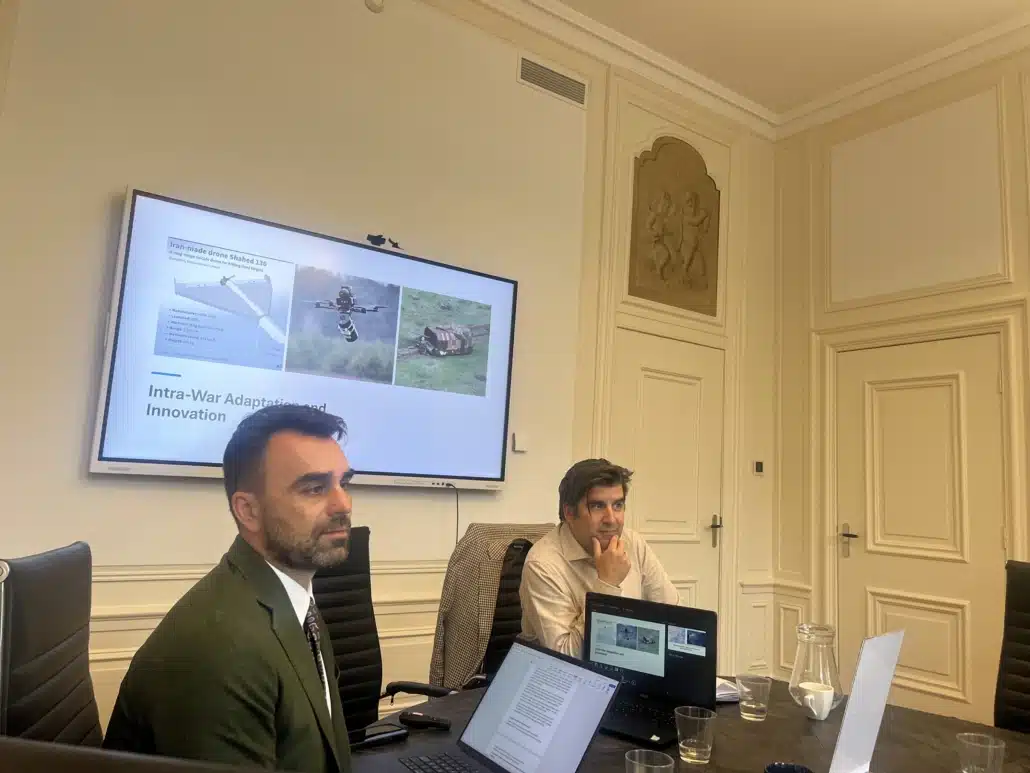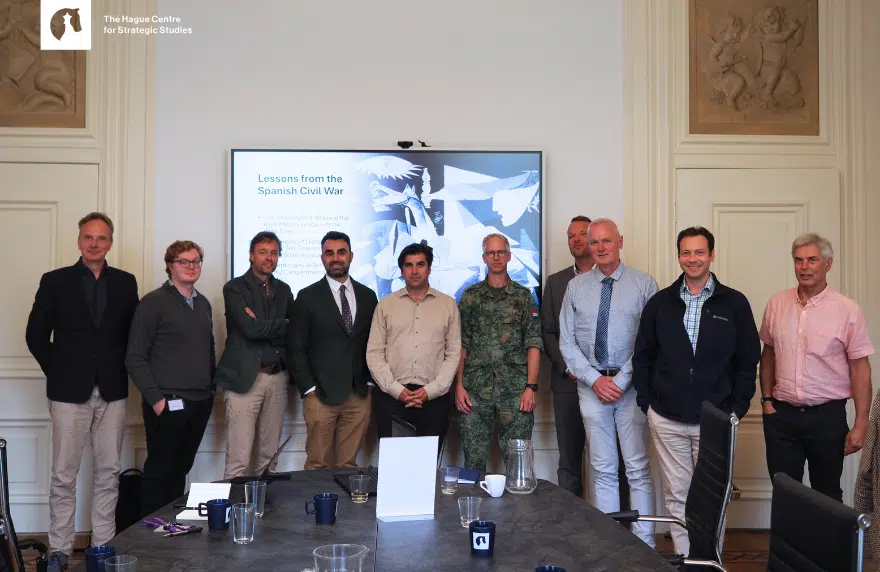On 11th September 2025, HCSS welcomed Dr. Iskander Rehman, author and Senior Political Scientist at the RAND Corporation for a lecture on the Lessons Learnt from the Spanish Civil War (1936-1939) applicable to the current war in Ukraine. Rehman’s comparative historical analysis yielded numerous insights relevant for today’s world.
Dr. Rehman observes both evident and non-evident parallels between the two global proxy wars. Both conflicts incontestably serve as test beds for military innovation, with international support playing key roles in the unfolding of the conflict. Less evidently, both contexts also observe the use of shadow fleets to circumvent arms embargoes or war profiteering with corporations bypassing economic sanctions, engagement in information warfare and the use of ‘ethnic auxiliaries’, Moroccans for Franco and Chechens for Putin, spreading terror on the front line.
From these comparisons, Rehman highlights three key lessons relevant for Western government’s approach to the current situation in Ukraine
Drawing the right lessons at the right time: It is crucial to identify and assess the impact of actions and adaptations, especially in rapidly changing wars like these ones, by being aware of one’s own biases, to shield against misinterpretations and underestimation of the threat like UK and French policy makers did during the Spanish Civil War and NATO and the EU policy makers following the invasion of Crimea in 2014.
Dangers of diplomatic and military self-deterrence for fear of wider escalation: The fear of involvement and escalation, which autocratic governments seem to suffer less from, and that we observe in both conflicts does not prevent conflict but does hinder the protection of democracies.
The artificiality of seeking to rigidly compartmentalise theatres: The unrealistic isolation of different dimensions of a conflict from each other and its broader context prevents comprehensive analysis and adapted response to the situation.
Dr. Iskander Rehman’s historical analysis highlights key strategic insights, providing links, patterns and associations to understand the role of different actors (Portugal/Germany in the Spanish Civil War, Belarus/North Korea in the War against Ukraine) and processes (intra-war innovation and adaptation).
Lessons learnt
- Drawing the right lessons at the right time
- Adaptation and innovation
- Move from our previous bias, misinterpretation and underestimation
- Lack of deterrence for fear that retaliation does not prevent conflict
- The artificiality of seeking to rigidly compartmentalise theatres
- Refusal to accept a war coming to European nations?
Key takeaways
- Historical analysis helps us position actors
- Air superiority: a big change since the Spanish Civil War
- Learn through innovation and adaptation
- Looking at specific windows of history to get the right lessons
- How do we win versus how do we prevent are different lessons
- Avoid engaging in a mirrored perception of rationality: all warfare is based on deception











